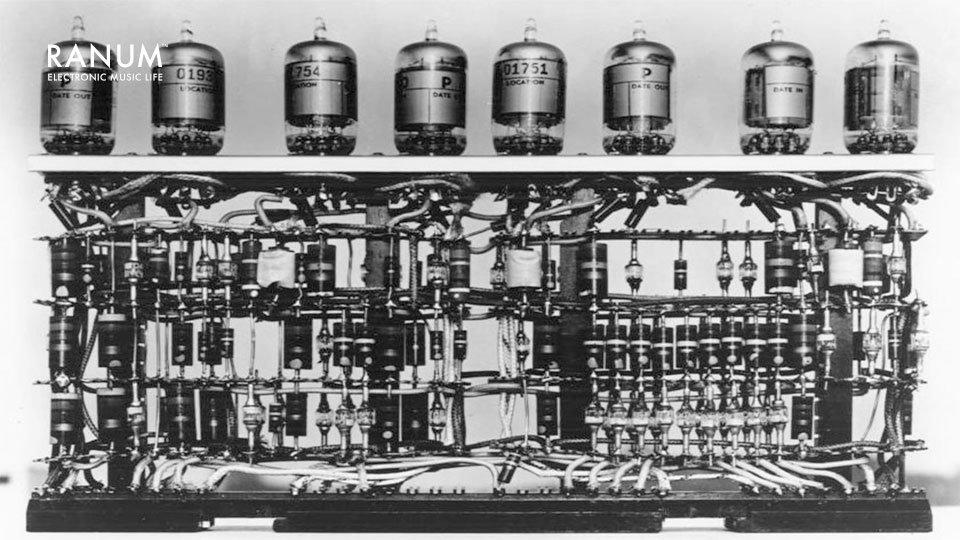The 1983 Report on Danish Electronic Music
Out of the labs
In continuation of talks with Danmarks Radio, The Royal Danish Music Conservatory and the state committee for experimental music, I was asked to write a report on the current Danish electronic music scene as I saw it. The report was not very merciful towards the scene at the time, and proposes a renaming of the small, elitist organisation “DEMF” (Danish Electroacoustic Music Foundation) to the rather less appealing word “DEAF” (Danish Electroacoustic Avantgarde Foundation).
In the report I suggest that all government electronic music activities in Denmark should be gathered under one roof in a new studio, with modern gear. And even provide a comprehensive list of possible gear to include in the studio. I also propose that the national broadcastong monopoly Danmarks Radio (DR) should up their game and devote a (very modest) 2 hours each month to electronic music, that they should use and promote electronic music and vignettes in the creation of programming, and create a job position to coordinate the electronic music activities.
But it was too early for real progress in this field, although the future was already showing up in the form of the new MIDI standard. I tried hard to get the electronic music out of the academic circles and put to use in real life, but the official Denmark was apparently not ready for that in 1983.
[gdlr_divider type=”solid” size=”100%” ]
Read the full PDF report here (in Danish):
Jesper Ranum: Rapport om Dansk Elektronisk musik (1983)
[gdlr_divider type=”solid” size=”100%” ]
The first steps
But some years later – in 1986 – a real initiative was taken, incorporating many of my suggestions and proposals. Coinciding with the finalization of the large, new music and concert hall (Musikhuset) in Aarhus, a state backed electronic studio (DIEM) was established, gathering many of the activities that had previously been spread out on several small fractions and associations. Competently headed by Wayne Siegel, DIEM is still very much alive, and plays a central role in the education of Danish electronic musicians.
Financial backing
And recently the great people at “Strøm” has in 2017 finally managed to get sufficient funding from the authorities, to work intensively with information and coordination of the electronic music scene. A host of activities have already been rolled out, which in time will help professionalize the scene and get electronic music the widespread public acceptance it deserves.
[gdlr_divider type=”solid” size=”100%” ]
(Photo by IBM. All rights belong to the original copyright holder)


